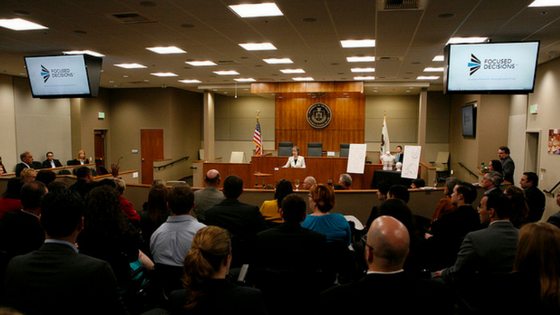A federal judge in Nevada is giving the Attorney General of the United States 60 days to decide whether it was to intervene in a case in which the constitutionality of the Telephone Consumer Protection Act is being called into question.
An order from Judge Andrew Gordon was issued last week in the case, Kibbee v. Smith-Palluck Associates Corp. The defendant is accused of violating the TCPA by using an automated telephone dialing system to place phone calls to the plaintiff after the plaintiff had revoked consent to be contacted.
The defendant argued that the plaintiff provided consent when he signed up to use the defendant’s gym facilities, a contract that also included a clause that any change to the contract had to be undertaken in writing.
Along with filing a motion to dismiss the suit, the defendant has also filed a motion raising a constitutional question: Whether the restrictions on the use of an automatic telephone dialing system or an artificial or pre-recorded voice contained in 47 U.S.C. § 227(b) violate the First Amendment and/or the equal-protection component of the Due Process Clause of the Fifth Amendment.
While indicating that the intervention of the Attorney General on the constitutional question raised by the defendant is not necessarily warranted, because the question overlaps a similar question currently before the Ninth Circuit Court of Appeals in Gallion v. Charter Communications Inc. Judge Gordon also indicated he may decide to stay the case pending the outcome of Gallion.









